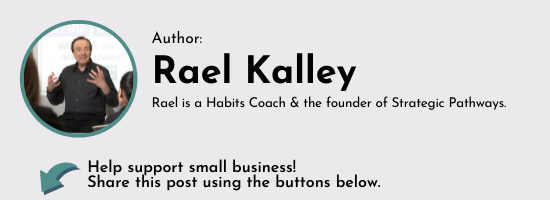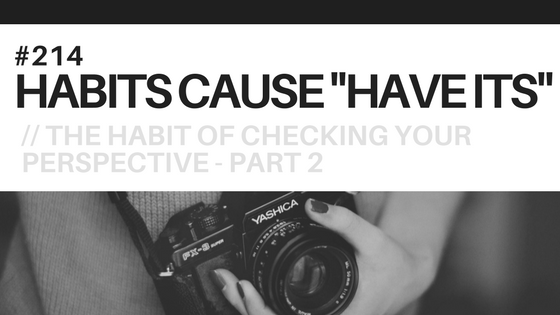I’m always reminded of the power of perspective when I step into the role of mediator in my work.
I have worn this hat on more than 200 occasions and I am always amazed at how the causes behind the discontent that brings two or more people to the brink of war almost always come down to the same drivers.
The parties involved were looking at the same situation from opposing angles.
In other words, they were all seeing the same things and then placing different meanings on them.
The Habit of Checking Your Perspective
The Habit of Checking your Perspective offers a unique opportunity to remind ourselves that all we have available to us to make sense of the world in which we live, is the interpretation we place on events in our lives.
Facts in and of themselves play only a small role in the way we make our way through life. Our feelings play a far greater role in the quality of our lives than facts ever can and these feelings are formed by our perspective – the meaning we place on events rather than the events themselves.
Much like the chicken and the egg theory, we can never be sure whether our emotions are the result of our perspective or whether our perspective is triggered by our emotions
Mediation is often requested when two or more people, or two or more groups of people, seem unable to play nicely together in in a sandbox, with each side explaining the need for the invasion.
My role as mediator is not to favour one side over the other, nor is it to change the opinion of any one group.
My role is simpler than that: it is to encourage each side to expand their viewpoint so as to accept that as committed as they may be to the “truth” of their position, their position is neither right nor wrong, it is the meaning they have chosen to make sense of the situation.
Recently I met with two groups of executives of a large multinational corporation. They were bitterly divided over the direction they felt the company should take and, as you may have guessed, neither side was willing to concede that the other had any validity to their viewpoint.
Both sides were equally keen to point out that theirs was a “fact-based” position, and therefore correct; the other side “didn’t know what they were talking about.”
What About Those Pesky “Alternative Facts?”
Most of us think what we believe is an irrefutable, indisputable fact, which of course must mean any viewpoint to the contrary can only be wrong.
We spent considerable time talking about the power of perspective and its effect upon us and I introduced The Habit of Checking Your Perspective with a strong recommendation that it be practiced by all.
To my delight, it was, and within a few days both sides were willing to start looking for the positives in the others opinion while at the same time becoming willing to more closely examine their facts.
As we have said many times; everything we believe to be true is true, for us, until it isn’t. I know of no greater way of broadening our perspective than a willingness to explore and seek the positive and the good in the perspective of others, because this practice our willingness to explore other possibilities.
It is said that the quality of our lives is merely the quality of our perspective which means we have the gifted ability to see opportunity in adversity, future joy in present sadness and a bright and shiny light in our moments of deepest darkness.
And with a little practice The Habit of Checking Your Perspective could help get you there in record time.
Let’s make a habit of meeting like this.


